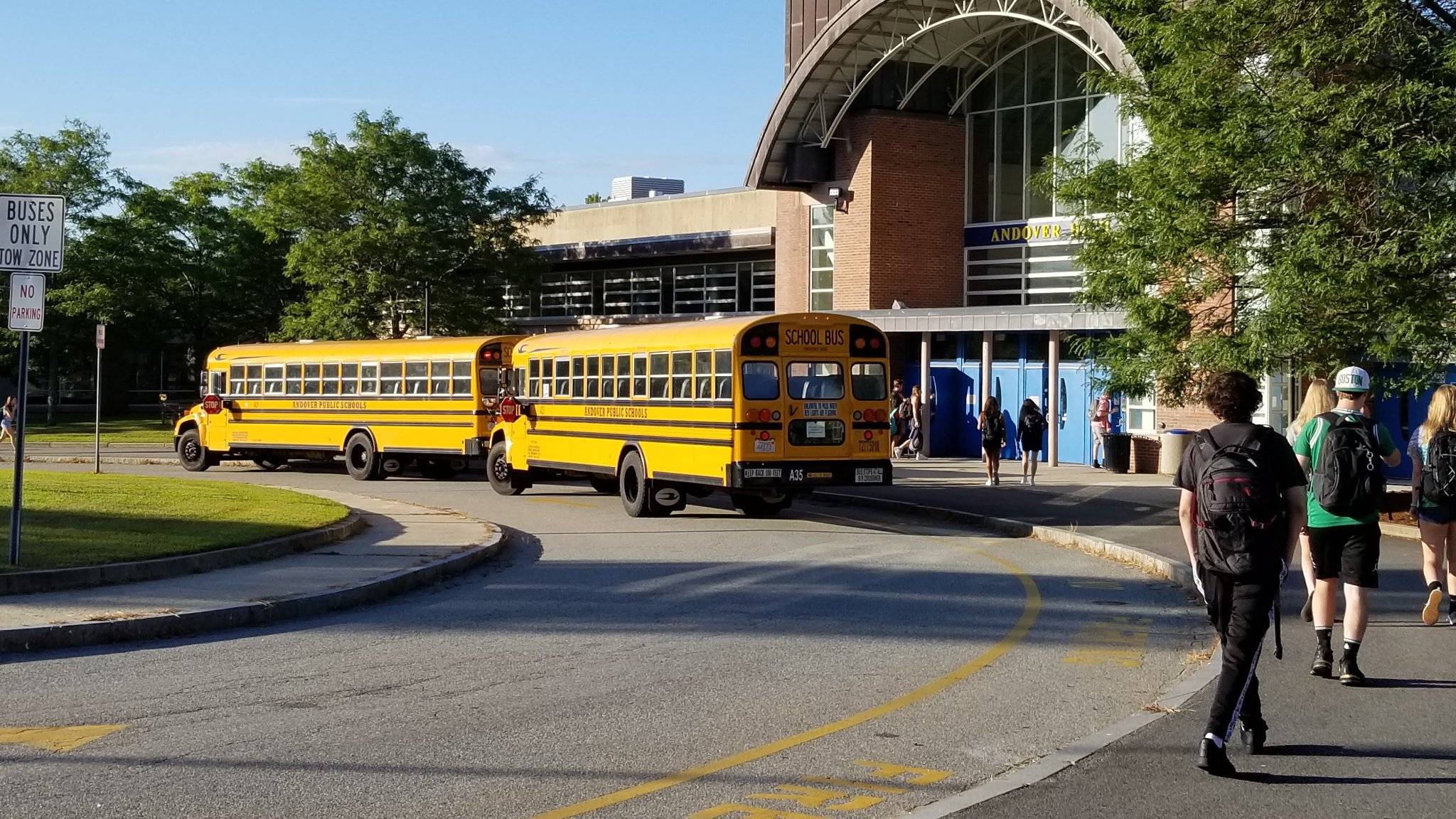Community members voiced their concerns about the impact future cuts to federal funding could have for Andover Public Schools, after President Donald Trump signed an executive order earlier this year to “end radical indoctrination” in schools.
The executive order proposes withholding federal funds from K-12 schools that practice “illegal and discriminatory treatment and indoctrination,” highlighting specifically “gender ideology and discriminatory equity ideology.”
Keith Taverna, assistant superintendent of finance and administration for Andover Public Schools, said he does not believe this executive order will impact the federal funding Andover Public Schools receives at this point.
“That is subject to change depending on how [the order is] actually implemented and what the implications are on federal grant funding,” Taverna said.
Taverna said the majority of federal funding the district receives is entitlement-based, meaning federal funds are granted to Andover Public Schools based on a predetermined formula that is defined by law.
According to Taverna, the district receives approximately $1.99 million in federal funds through entitlement grants. This amount of funding the district received for this current school year is outlined in the Fiscal Year 2025 Budget that is set by the Andover School Committee.
This story was published as part of a collaboration between Andover News and the Department of Journalism in Boston University’s College of Communication. The student journalist is a member of Professor Meghan E. Irons’s Reporting in Depth class.
“The majority of that money is dedicated to special education,” Taverna said. “So if those [programs] were to be cut in a separate executive order, that would have a more direct effect on our budget than some of the other grants.”
Tara Baldwin, an Andover resident and parent to a junior attending Andover High School, said she believes it’s important to provide funding for special education students and those with Individualized Education Programs, or IEPs. IEPs create a plan outlining the special education a student receives, and are supported by the federal entitlement grants the district collects.
“Some families can’t afford extra schooling or tutoring,” Baldwin said. “It wouldn’t be beneficial to cut [funding] off because people need it and rely on it.”
Peter Chave, who currently has two children attending Andover Public Schools, said his eldest child, who has graduated and now is in college, was on an IEP.
“Any executive orders that would impact that funding, or would cut what I think are very excellent programs Andover has, would be very concerning to me,” Chave said.
Chave, who is originally from the United Kingdom, said he thinks education is underfunded in the United States and that has impacted the quality of learning.
“I come from a different education system, and we’ve noticed a lot of differences [in] the pace of the courses, the specialty in the courses…and so less funding would be a bad thing,” Chave said.
Jacob Tamarkin, who was elected to the Andover School Committee in March, said it would be “politically unwise” for political leaders in Washington to “mess with education dollars too much.”
Tamarkin said while Andover happens to be a relatively affluent community and therefore does not rely heavily on federal aid, the town’s dependence on state aid may be indirectly impacted with decisions made at the national level.
“There are all kinds of programs that…they could pull the plug on,” Tamarkin said. “That will cause the state to scramble, and then I could see them cutting our state aid.”
While the district relies on entitlement grants distributed by the federal government, it also receives private funding from groups such as the Cummings Foundation, which offers grants to local nonprofits.
The foundation first awarded $100,000 over three years to the district for a civics education program in 2019. In 2023, the foundation also provided a grant of $150,000 over the course of another three years for an author visit series as part of Cummings’ $30 Million Grant Program.
“At this point, we don’t anticipate any changes to our grant program,” said Joyce Vyriotes, executive director of the foundation. “We’re certainly hearing concerns about anticipated cuts, but for many of our grantees, shortfalls have not yet materialized.”
Vyriotes said a school district could choose to apply for future funding from the foundation if an executive order cutting federal funding were to be enacted.
“It’s up to Andover Public Schools to interpret the executive order and determine whether changes to the grant-funded program are necessary,” Vyriotes said. “Our current understanding is that the school district intends to continue the program.”
The district is set to receive more funding this year, with the proposed budget for Fiscal Year 2026 providing a 3.75 percent increase of $3,885,714 for school operations from last year. “Generally speaking, 80 percent of our budget is spent on salaries and 20 percent is spent on non salaries,” Taverna said.
If the school district were to lose federal funding in the future, Taverna said the district would respond when the “decision has to be made.”
“If we were to lose grant funding, we would have to look at [the budget], and typically we would say within those allocations, it would result in reduction in our non-salary items, and likely positions would have to be reduced,” Taverna said.
On March 20, Trump signed an executive order aiming to dismantle the Department of Education, arguing the department’s main functions “can, and should, be returned to the states.”
In a speech after signing the order, Trump said resources for children with special disabilities and special needs will “be preserved in full and redistributed to various other agencies and departments that will take very good care of them.”
Instead of cutting funding, Chave said he believes the government should be “doing the opposite.”
“Education is the most important thing we do for our kids,” Chave said. “I think we should be accelerating the funding into our school system.”

